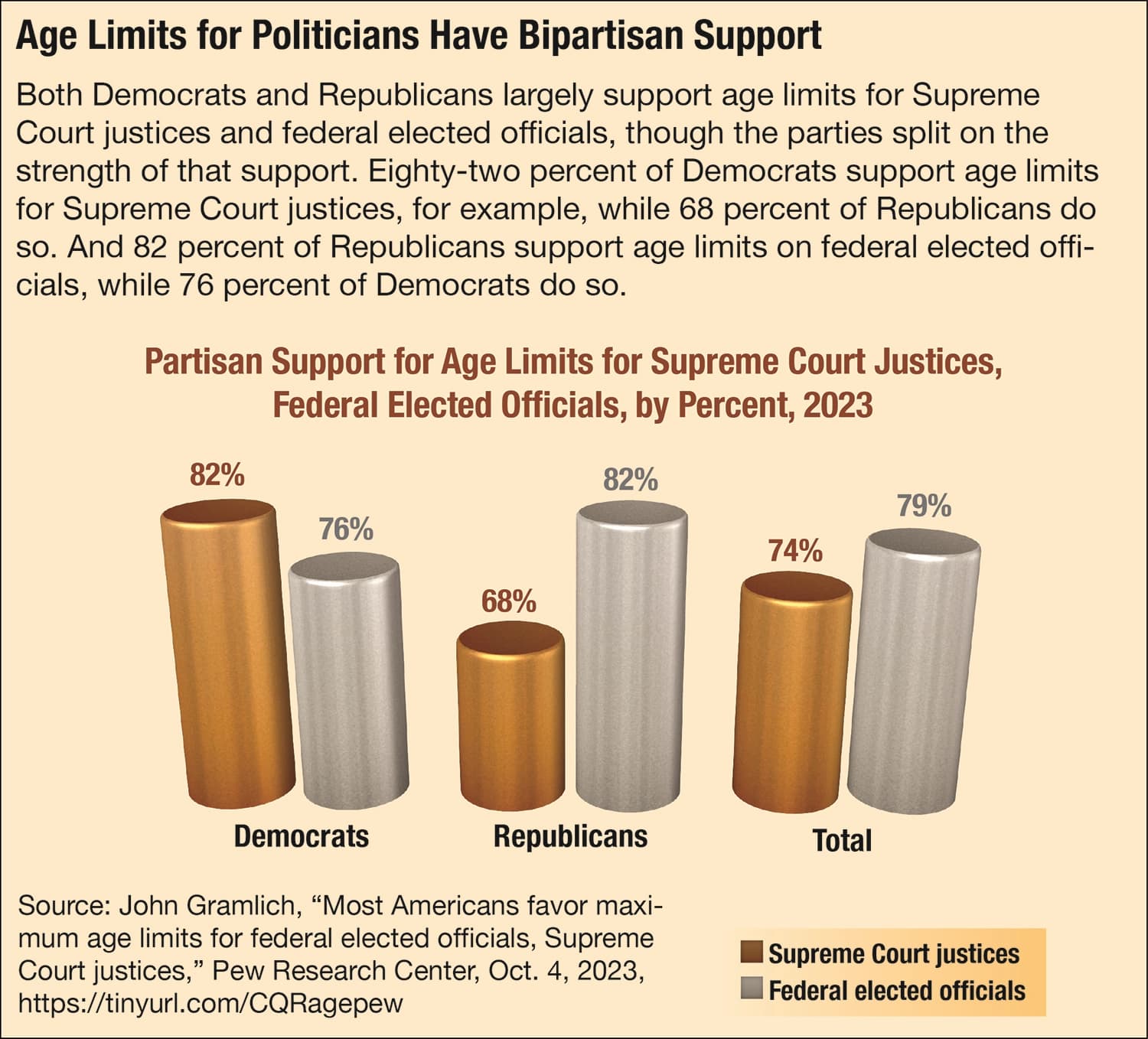Public Concern Mounts as 79% of Americans Favor Age Limits for Federal Officials

Washington D.C. – A recent Pew Research Center survey reveals that 79% of Americans support establishing maximum age limits for federal elected officials, reflecting growing public apprehension about the advanced age of some political leaders. This sentiment aligns with a broader pattern of concern regarding the longevity of politicians in office, as articulated by journalist Billy Binion.
Binion, a reporter for Reason magazine, recently highlighted this issue on social media, stating, "We shouldn't have to watch taxpayer-funded public servants practically die in front of us." This direct commentary underscores a public weariness with politicians who appear to remain in power despite visible signs of age or declining health.
The current 119th U.S. Congress, while showing a slight overall decrease in median age, still includes a notable contingent of older members. The median age for the House of Representatives is 57.5 years, and for the Senate, it is 64.7 years. Despite these averages, the New York Times reported that nearly 120 members of Congress were 70 or older at the start of the current term, including 14 octogenarians in the House and five in the Senate.
High-profile incidents involving the health of veteran politicians have intensified public debate. The late Senator Dianne Feinstein of California continued to serve until her death at age 90 amid concerns about her cognitive fitness. Similarly, Senate Minority Leader Mitch McConnell, 81, has experienced widely publicized "freezing" episodes, further fueling discussions about politicians' capacity to effectively fulfill their duties.
The public's desire for age limits extends to the highest offices, with only 3% of U.S. adults believing a president in their 70s or older is ideal. This concern is particularly acute given that both leading presidential candidates in the 2024 election, Joe Biden (81) and Donald Trump (77), are among the oldest individuals to seek the presidency. The debate also includes calls for mental competency tests for politicians over 75, though such proposals remain controversial and face criticism as ageist.